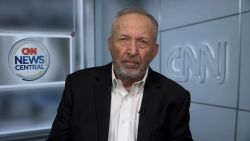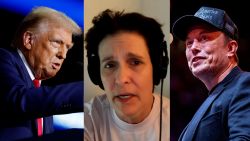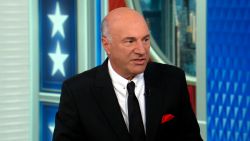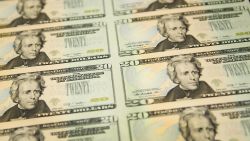Saudi Arabia’s mountain of cash has upended the world of professional golf. But that is only a small sliver of the money it is sinking into a number of prominent businesses elsewhere around the globe as the kingdom moves to diversify away from a dependence on oil income – and as the petro-kingdom tries to achieve its political goals.
The Saudi Public Investment Fund is a government-controlled fund that has $650 billion in assets under management, according to its most recent filing. It is aiming to top $1 trillion within a few years. A state-owned investment fund like the PIF is not unique. It is ranked only the seventh-largest in the world, according to the Sovereign Wealth Fund Institute.
While some of those are pension funds for a country’s citizens or public employees, others, like the PIF, operate the way a private sector investment firm might, trying to make money through a diversified portfolio of investments.
But what makes Saudi Arabia’s fund different from those private investment firms is that since the country faces widespread condemnation for its human rights record, its investments in sports and other entertainment companies can be seen as an attempt to polish that tarnished reputation.
The PIF’s creation of LIV Golf a year ago, reportedly at a cost of $2 billion, attracted many of the sport’s top players away from the US-based PGA Tour and Europe-based DP World Tour by offering big dollar prize money. It led to a year-long legal battle that banned LIV golfers from the established tours and brought some unwanted attention to Saudi’s human rights record. Critics of LIV Golf accused the Saudis of backing the new tour as a form of “sportswashing” its reputation.
But the legal battles, acrimony and competition for the best golfers between LIV and the PGA and DP World Tour suddenly ended Tuesday with the announcement that the three would form a combined for-profit company. The PIF plans to make undisclosed additional investments into the entity.
Soccer, video games and other investments
The chairman of the new golf series will be the chairman of state-owned petroleum company Saudi Aramco, Yasir Al-Rumayyan, who also controls English soccer team Newcastle United and is himself a governor of the PIF.
The Saudis have also been throwing big dollars at some of the world’s best known soccer players, wooing legends such as Cristiano Ronaldo and Karim Benzema to play in Saudi Pro League.
The investment in sports is not a vanity play, according to Al-Rumayyan.
“It all makes financial sense to us. We don’t like to subsidize things,” he said on an interview on CNBC Tuesday announcing the deal with the PGA.
But whether the Saudis’ investments are driven by a desire for profits or good publicity, what’s clear is that pro sports are not the only place where the Saudis are flexing their financial might.
For example, it has a total of $7.5 billion in investments in several leading video game companies, according to its most recent filing, giving it a 9% stake in Electronic Arts (EA), a 7% stake in Take-Two Interactive and nearly a 5% stake in Activision Blizzard (ATVI). It also owns more than 5% of Live Nation (LYV), the concert promoter and owner of Ticketmaster, and significant stakes worth hundreds of millions each in cruiser operator Carnival Corp (CCL)., Uber (UBER) and Zoom (ZM).
Its biggest US investment is in upstart electric vehicle maker Lucid (LCDX). The PIF owns 60% of Lucid (LCDX)’s stock, worth $7.6 billion as of Tuesday’s close. Lucid (LCDX) recently announced the PIF would invest another $1.8 billion in the company to help fund its operations.
In 2018 when Elon Musk was thinking about taking Tesla (TSLA) private, he sought funding from the PIF, which already had a stake in Tesla (TSLA) at that time. It no longer lists Tesla (TSLA) as one of its holdings. But last year it helped Musk with his $44 billion purchase of Twitter by agreeing to roll over its existing $1.9 billion investment in the social media platform to the new Musk-controlled company.
Not all of the PIF investments have been publicly disclosed. For example it’s not clear exactly how much it invested to start up LIV Golf. And the Washington Post has reported that it invested $2 billion into a private equity firm created by Jared Kushner, Donald Trump’s son-in-law, soon after Kushner left his position in the White House in January of 2021. CNN has not been able to confirm that report, but what is known is that LIV Golf tournaments have been held on Trump Organization properties.
Saudi Arabia and human rights criticisms
Many of these investments, including the creation of LIV Golf, have sparked controversy.
The PIF is chaired by Mohammed bin Salman, the Crown Prince of Saudi Arabia. Bin Salman is the man a US intelligence report names as responsible for approving the operation that led to the 2018 murder of journalist Jamal Khashoggi. Bin Salman has denied involvement in Khashoggi’s killing.
In addition, the US State Department says the Kingdom’s dismal human rights record includes free speech restrictions, torture, political prisoners and enforced disappearances.
And families of some of the victims of the Sept. 11 terrorist attack decried the news of the LIV-PGA agreement Tuesday. Some have accused the Saudi government of complicity with those attacks. Fifteen of the 19 al Qaeda terrorists who hijacked four planes were Saudi nationals, but the Saudi government has denied any involvement in the attacks. The 9/11 Commission established by Congress said in 2004 that it had found “no evidence that the Saudi government as an institution or senior Saudi officials individually funded” al Qaeda.
– CNN’s Coy Wire, Jack Bantock and Steve Almasy contributed to this report



























